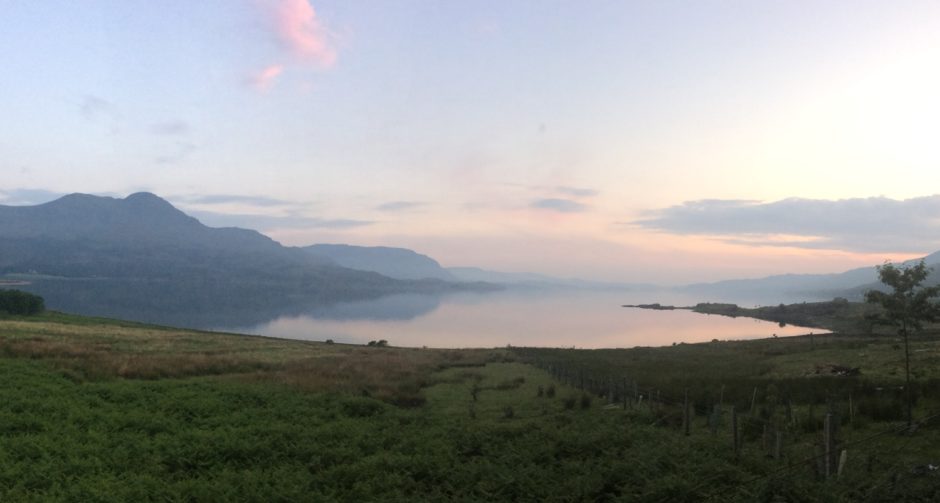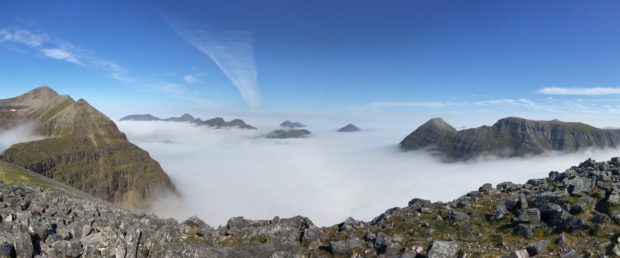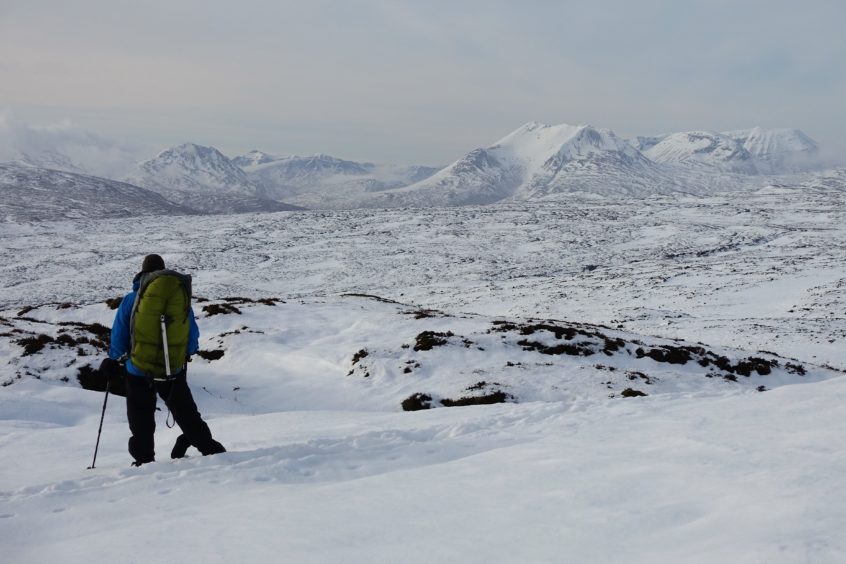It was thought to be a “boring” period in Earth’s development -lasting around a billion years.
But now, Aberdeen University scientists have unearthed rocks in the Highlands which indicate the planet may have experienced a previously unknown Big Freeze.
The university team has analysed rocks in the Torridon area of the northwest Highlands and found evidence of debris dropped from melting icebergs in lakes.
And, although they date from the period which many boffins describe as the ‘boring billion’ – which took place from 1800 to 800 million years ago – and there was nothing on earth except algae in the ocean, the discovery suggests the period might have included another ice age to add to those that have occurred throughout Earth’s history.
Professor Adrian Hartley led the study – which has been published in the Scottish Journal of Geology – along with colleagues from the university’s school of geosciences.
He said: “In Earth’s middle ages, it is thought not very much happened on the planet.
“Throughout this so-called ‘boring billion’ years, the global climate was temperate and unchanged.
“Life was limited to algae, the land was completely barren and oxygen was 10% of what it is now.

“Until now, no evidence for climate change had been discovered, but our study has shown there was ice at Earth’s surface during this period.
“We made the discovery by analysing silty lake sediments that are a billion years old, allowing us to identify locations where pebbles had fallen from melting icebergs and had formed impact features on the lake floor, deforming even older layers of sediment.”
He and his colleagues’ work highlights the dramatic transformation that has gradually taken place throughout the vast history of the Highlands.
Nowadays, the Torridon area is widely acknowledged as having some of the finest scenery in the whole of the British Isles and is popular with climbers, photographers, wildlife enthusiasts and countless visitors from around the world.
But that has only occurred after myriad seismic shifts and all manner of cataclysmic events, long, long before humans made their first appearance.
Prof Hartley added: “Similar studies have allowed us to reconstruct the recent glacial history of the Earth, but this takes us much further back in time to when Scotland was located at 35°S – the same latitude as South Africa.
“It is the first evidence globally for glaciation at this time in Earth’s history – proving that it wasn’t such a boring billion years after all.”

